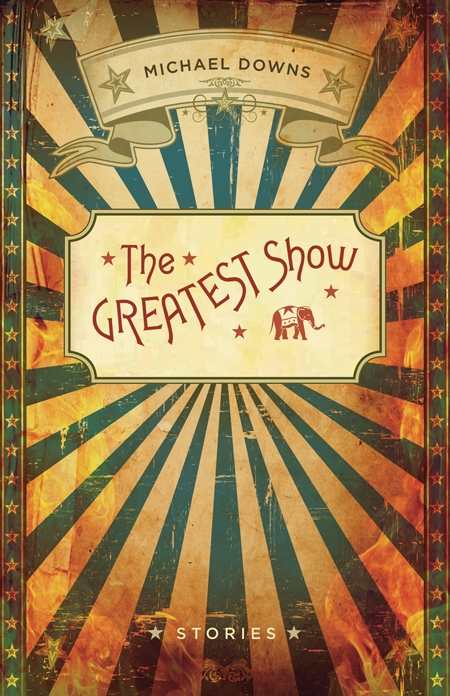The Greatest Show
On July 6, 1944, in Hartford, Connecticut, a Ringling Brothers and Barnum and Bailey big top went up in flames. Paraffin was used to waterproof the tents in those days, and waxy globs of fire dripped from the ceiling like hellish rain. Amazingly, of the seven thousand-strong crowd, only 168 people were killed, but hundreds more were injured. The fire so traumatized Hartford that it would be three decades before the circus would be allowed to return. This is the tragedy that Michael Downs, author of House of Good Hope: A Promise for a Broken City and winner of the River Teeth Literary Nonfiction Prize, builds his short story collection around.
But the stories collected here are only tangentially related to the circus fire. After the embers cool and the circus hits the road, wounds heal and life goes on for the Lisvaks and the DiFiores, who ground these interconnected stories. Though both working-class, the families couldn’t be more different: if the Lisvak universe is one of equivocation and fantasy, the DiFiores live in a no-nonsense, black-and-white kind of world.
When Nick DiFiore’s sister dies in the fire, he meets his future wife at her funeral. At the time, he’s a bachelor with a factory job and an “ill-furnished apartment on the edge of Hartford’s Italian ghetto,” but he’s a good man, principled. He’s the kind of man whom old maids phone to vet their gentlemen callers, the kind who sits up with a grieving widower or lends a hand repaving a neighbor’s drive. Doing the right thing might not always be easy, but for Nick, it’s no mystery what should be done: contribute when you can; never exploit your strength; protect the weak and innocent—principles he does his best to pass along to his son, Franco, so that when old age and a couple of strokes reduce Nick to punching defenseless snowmen, Franco has grown into the kind of man who’d travel from Georgia to watch a fight with his father on his birthday.
Life is easy when the world is black and white. But when you want to feel more than just “skin and gratitude,” things get more complicated. Ania Lisvak is a pretty Polish maid, left raising her three-year-old son, Teddy, while her husband is off fighting the war, when she steals two tickets to the circus. Both Ania and Teddy are badly burned in the fire, and when Charlie Lisvak returns from the front, it’s to a wife and son he’s unable to touch.
Ania is blessed with a husband who loves her more than life and a wonderful son, but she craves the “strange or beautiful,” often disappearing for days at a time. When she returns, it’s with gifts for Teddy, trinkets she claims fell from the sky or once belonged to FDR or King Arthur. But fantasy is only diversion, it doesn’t have the power to make Ania believe. Though she plays at a passion she doesn’t feel for her husband, she comes to resent the charade and pushes him away. In her later years, Ania becomes the neighborhood eccentric, and when she imposes on a young couple’s date with her tales of giant rats and saints, a neglected young woman thinks she’s found someone to save her. Ania’s penchant for make-believe proves to be more problematic for Teddy, who, while comfortable with facts and his physical scars, remains uncomfortable with narrative embellishments: it’ll be fifty years before he learns to tell his story of the circus fire, a story he doesn’t remember. And when his father claims to have shot one of the circus elephants in a heroic act of revenge, Teddy mourns for the elephant and, later, scours archives for evidence.
Downs writes with penetrating honesty about the cruel and beautiful ways we love, and though each story works on its own, The Greatest Show reads more like an episodic novel. Perhaps that’s because the characters collected here are so complex, the moments shared so rich, the lives so unforgettable. This is an auspicious fiction debut from a marvelously talented writer.
Reviewed by
Devon Shepherd
Disclosure: This article is not an endorsement, but a review. The publisher of this book provided free copies of the book to have their book reviewed by a professional reviewer. No fee was paid by the publisher for this review. Foreword Reviews only recommends books that we love. Foreword Magazine, Inc. is disclosing this in accordance with the Federal Trade Commission’s 16 CFR, Part 255.

